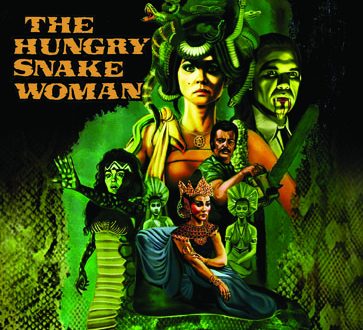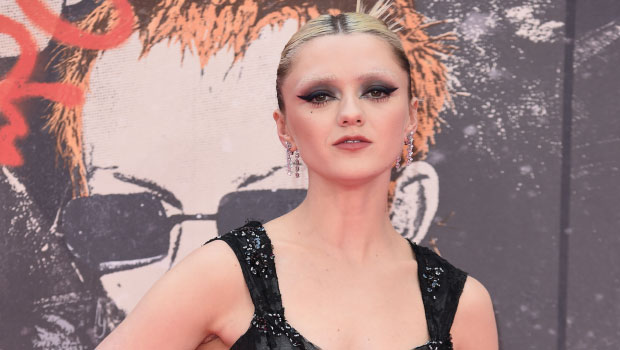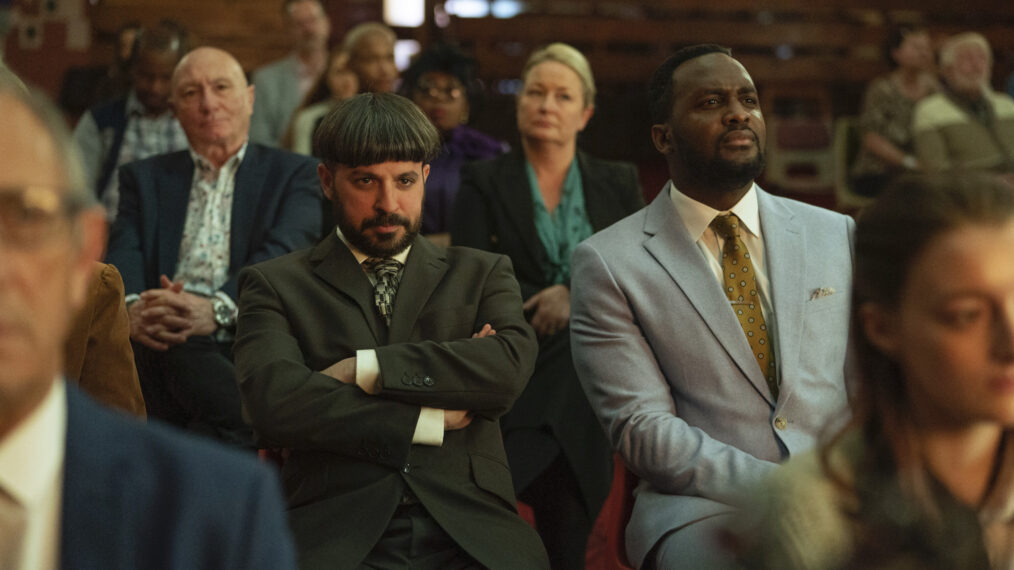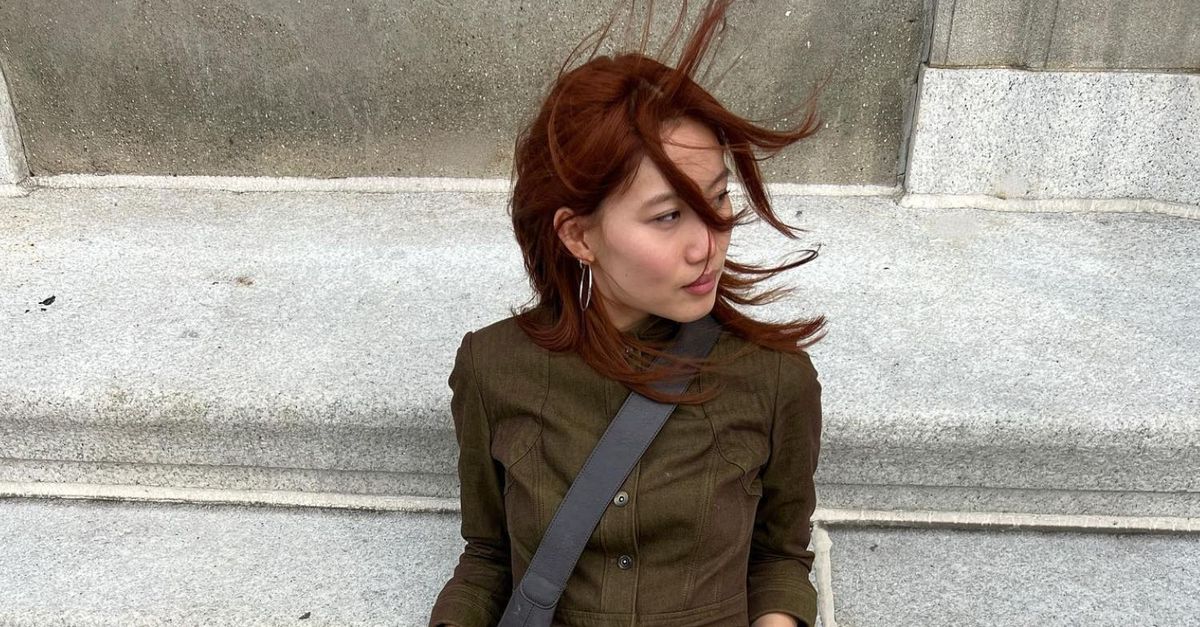Twice a month Joe Lipsett will dissect a new Amityville Horror film to explore how the “franchise” has evolved in increasingly ludicrous directions. This is “The Amityville IP.”
Straight off the top, audiences going into An Amityville Poltergeist (2020) hoping to see objects flying around the famed Long Island house need to adjust their expectations. Despite featuring the word “poltergeist” in the title, the film is more of a drama with J-Horror spectral hauntings. In fact all of the horrific set pieces draw heavily on the visual iconography of Ringu/The Ring and The Grudge.
An Amityville Poltergeist is another name-only entry in the Amityville “franchise.” According to IMDb trivia, the film was shot under the title No Sleep, then became Don’t Sleep in post-production, then changed to include Amityville by the distributor when it was being shopped around.
So while there is a brief, half-hearted attempt to capture the iconic cat eye windows, it’s no surprise that that’s the film’s only connection to 112 Ocean Ave. The word/location is never uttered; there’s no mention of the DeFeos; and there are no haunted objects.
What co-writers Jon Ashley Hall and Calvin Morie McCarthy, who also directs, manage instead is a run of the mill haunting narrative. And while there is some decent drama about caring for sick relatives and twenty-somethings struggling with bad choices, An Amityville Poltergeist is a pretty bland horror film.
The film uses two timelines – one in January and one in February – to tell its story. After opening in media res in February, the narrative jumps back six days to chronicle lead character Jim (Parris Bates)’ unusual house-sitting gig.
He’s hard-up for funds after unexpectedly taking a year off College to escape family commitments. Desperate for a quick influx of cash, Jim jumps at the opportunity to make $100 a night. The gig is looking after the home of 70-year old, possibly senile Eunice (Rebecca Kimble) while she and son Tony (or Jason, as Ashley Hall’s character is referred to online) take a quick trip. Naturally ghost girls and nightmares ensue.
Both Jim and Eunice have complicated family backstories, which are revealed slowly over the course of the narrative. The two timelines are separated by a title card indicating the date and time and tend to only feature either Jim (in February) or Eunice (in January). Still, the fact that the two time periods aren’t more visually distinct is something of a lost opportunity.
These temporal shifts, in addition to the iconography of a crawling, bone-cracking woman with long black hair and gaping mouth, clearly evokes The Grudge. Meanwhile there’s no less than two scenes in which the girl crawls out of a staticky television that’s clearly drawing from Ringu/The Ring.
Alas, despite pulling from two of the most acclaimed modern J-Horror franchises, An Amityville Poltergeist film has none of the same impact. It’s as though McCarthy thought that simply using the same imagery as Hideo Nakata, Takashi Shimizu, and Gore Verbinski would suffice.
Even more problematically there’s no variety. Amityville Poltergeist goes back to the same well (pun intended) time and time again: a hand snakes around a door frame, the girl slowly shuffles up or down of the stairs, or she crawls after someone on all fours. A few times might have been tolerable, but after the fifth (or tenth?) time it’s just boring. At one point Jim also has four back-to-back nightmares, which would be laughable if it weren’t so exhausting.
What’s surprising is that the human drama is far more effective than the horror. We learn that Jim is adrift after abdicating his familial responsibility in the wake of his mother’s death from cancer. As a result, he’s unmoored: he’s got no job and his only friend is Collin (Connor Austin), an oafish misogynist who only wants to smoke up and talk about sex with girlfriend, Alyson (Sydney Winbush).
Bates doesn’t have much to do other than look confused or concerned, but the Ben Whislaw lookalike makes Jim an empathetic protagonist, nonetheless. If An Amityville Poltergeist were a low budget drama, his story would be a compelling portrait of a mid-mid-life crisis.
Eunice is also struggling. She spends most of the film complaining of her trouble sleeping and rationalizing to Tony/Jason and daughter Donna (Airisa Durand) that she needs a gun for protection. Although it (again) better serves a drama rather than a horror film, Donna and Tony/Jason’s arguments about how best to care for an elderly parent whose behaviour is becoming increasingly erratic is kinda compelling.
These performances help smooth over the film’s slower moments, but unfortunately the actual plot – ie: what is going on in the house – is far too predictable. Partner this with underwhelming scary sequences and a reliance on replaying the same scenarios over and over again, and the film feels like a slog somewhere around the halfway point.
Overall An Amityville Poltergeist is simply too slight and repetitive. There’s only so much that blue lighting and fog under the doors can compensate for.
The Amityville IP Awards go to…
- Surprising Character/Performance 1: Thanks to Winbush, Alyson winds up being unexpectedly complicated. The character candidly pursues a sexual relationship with Jim and openly acknowledges that her decision-making is poor and/or informed by trauma. The last act of the film does the character dirty, but Winbush is pretty watchable, despite some shallow writing.
- Surprising Character/Performance 2: While both Kimble and Ashley Hall’s performances are wobbly, Durand is solid in her brief screen time. Donna certainly helps to make the January scenes go down a little easier.
- Best Dialogue: This exchange between Collin and Jim (as the former smokes up)
- Collin: “What are you: The Mentalist?” Jim: “Yeah, and your future looks…stoned.”
Next Time: We’re checking out Thomas J. Churchill’s second “franchise” entry, The Amityville Moon (2021), which is purportedly a sequel to the overstuffed The Amityville Harvest.





































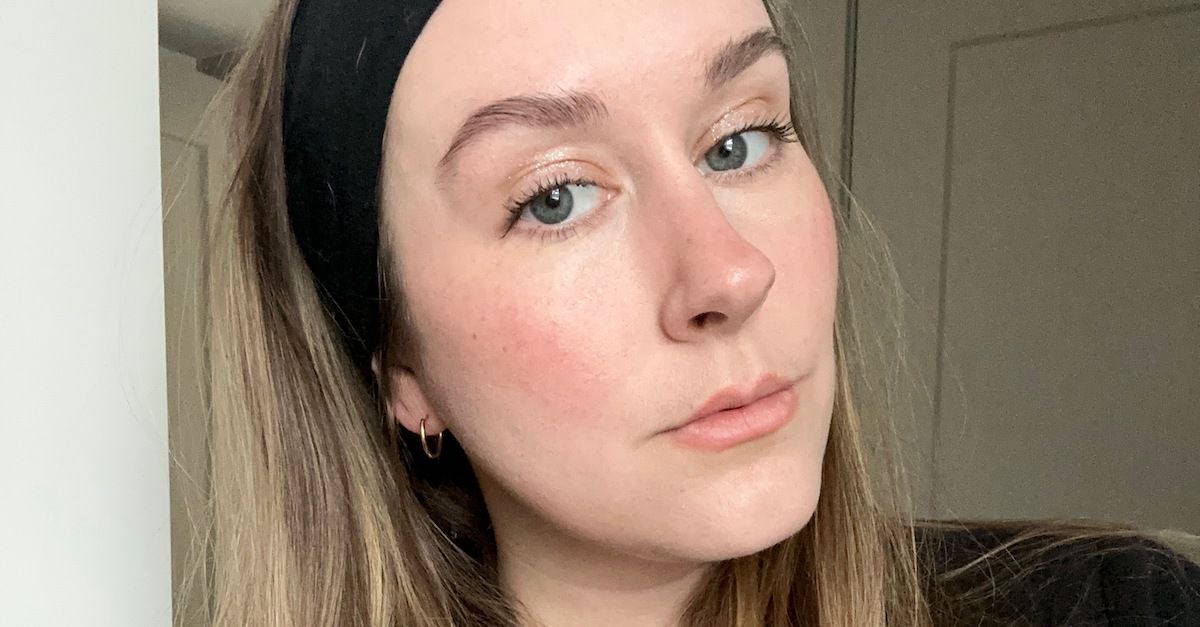




















![Mason Ramsey – Twang [Official Music Video] Mason Ramsey – Twang [Official Music Video]](https://i.ytimg.com/vi/xwe8F_AhLY0/maxresdefault.jpg)










